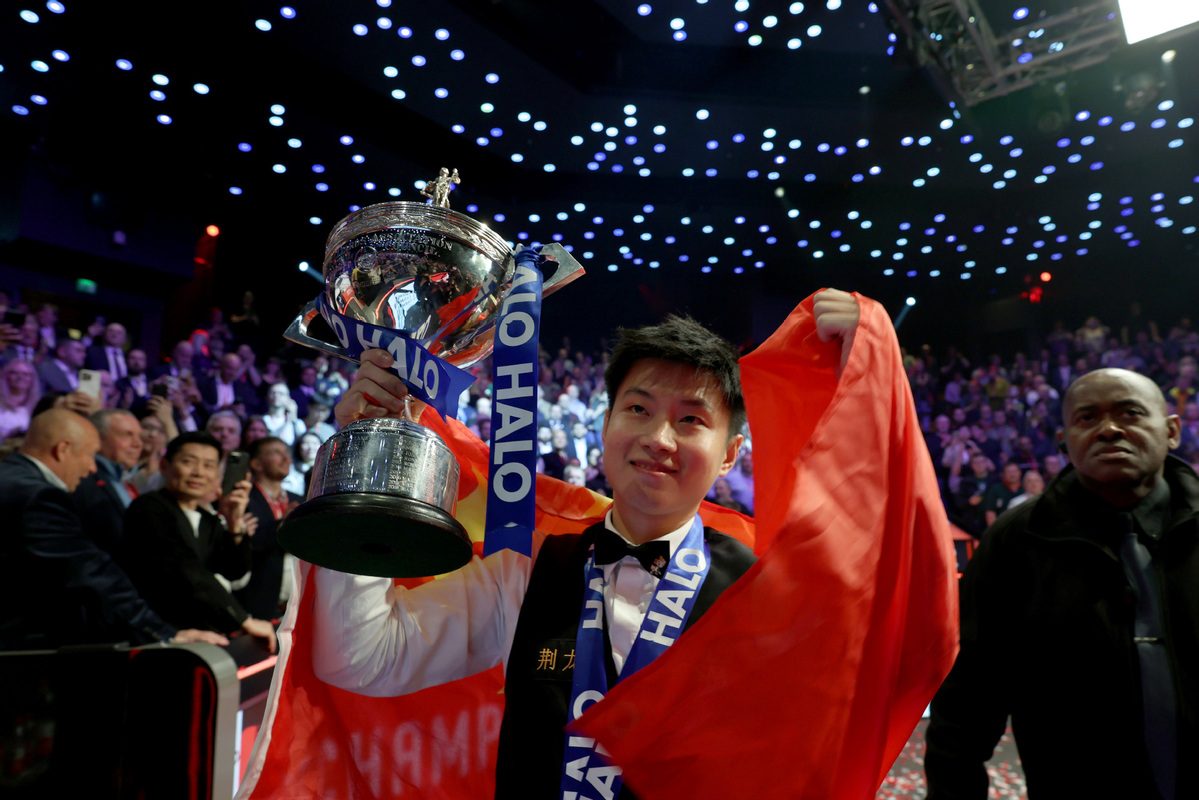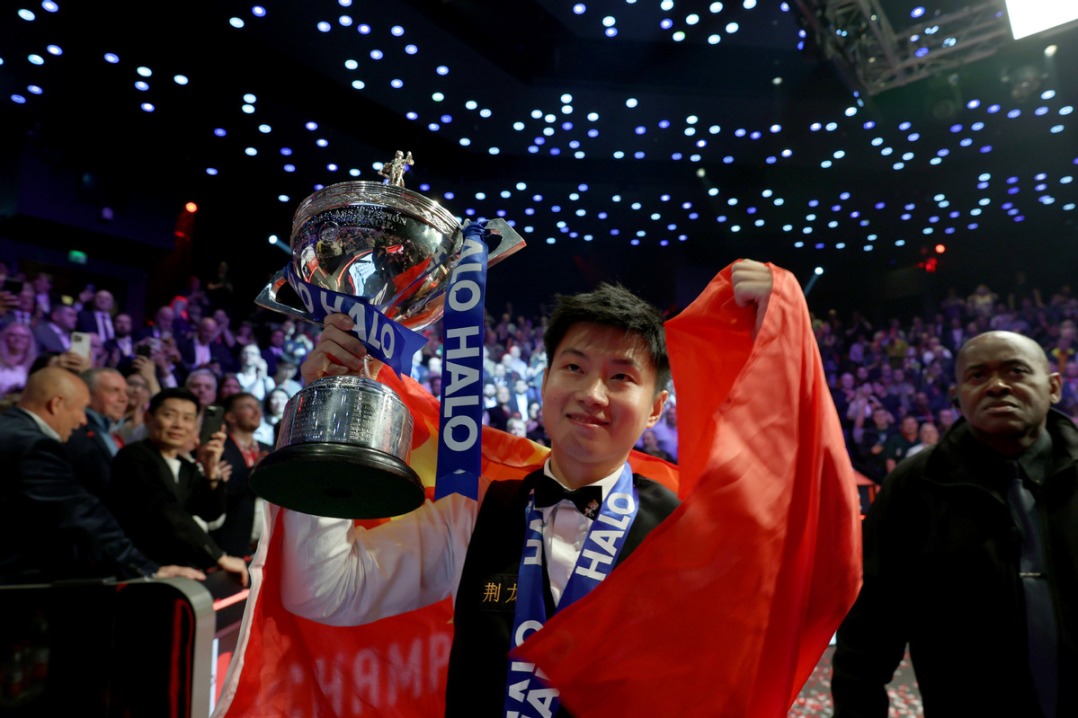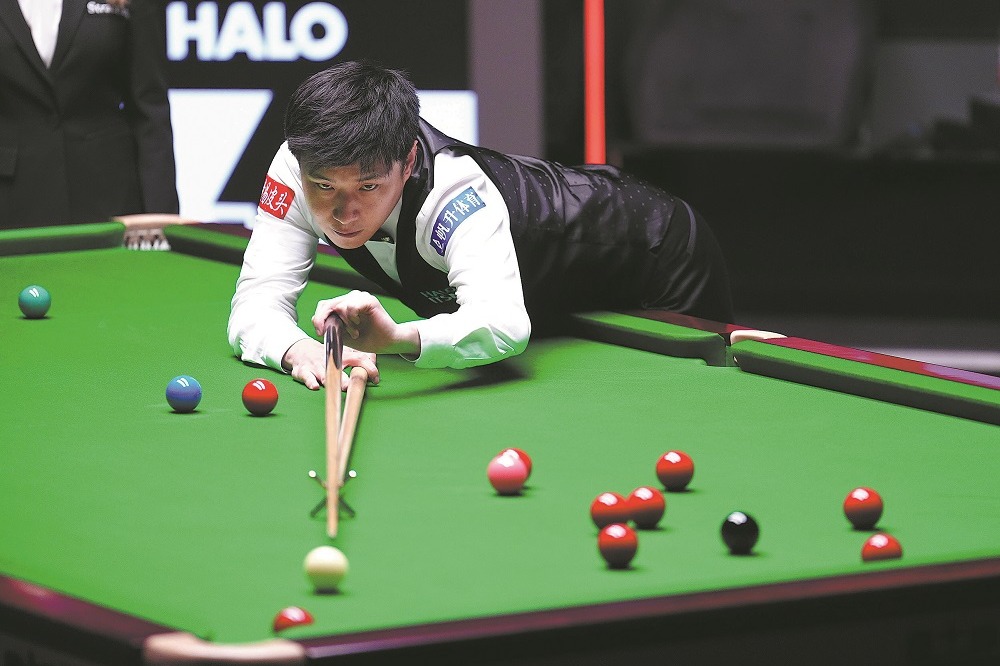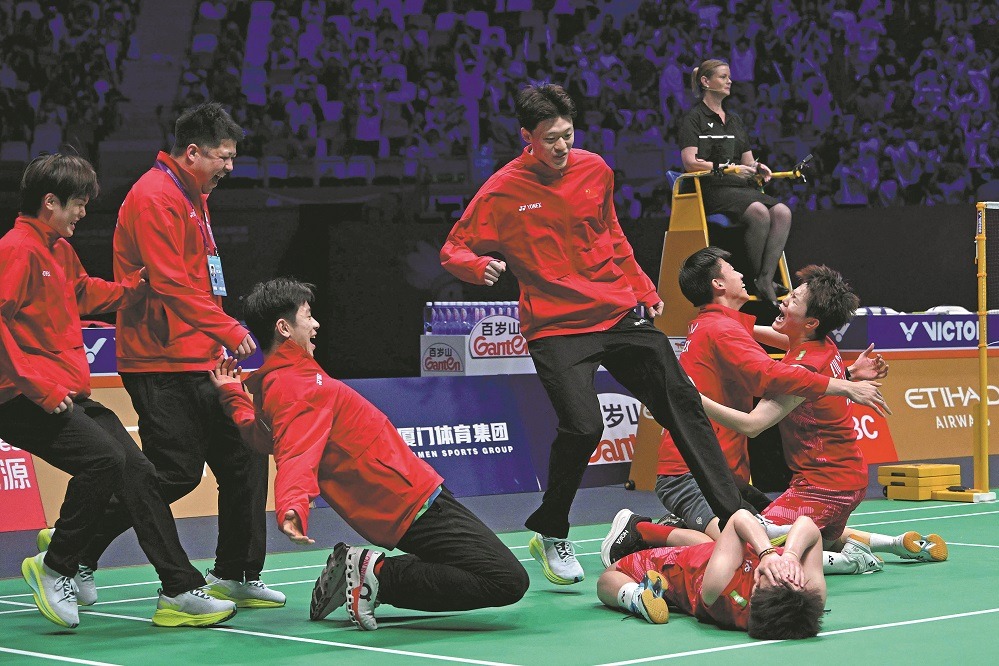Historic victory returns some of Chinese snooker's lost luster


Zhao Xintong's historic victory at the World Snooker Championship on Monday is expected to finally dispel the shadow cast over Chinese snooker by the 2023 match-fixing scandal.
Snooker's rise in China began in 2005, when 18-year-old Ding Junhui won the China Open, becoming a national hero overnight and sparking widespread interest in the sport, traditionally dominated by players from the United Kingdom and Ireland.
Over the years, Chinese players have grown into a major force in professional snooker. However, China's snooker landscape was rocked to its foundations in 2023, when 10 Chinese players — including former UK Championship winner Zhao, Masters champion Yan Bingtao, and UK Championship finalist Liang Wenbo — were charged with match-fixing offenses. Others implicated were Lu Ning, Li Hang, Chen Zifan, Chang Bingyu, Zhao Jianbo, Zhang Jiankang and Bai Langning.
Jason Ferguson, chairman of the World Professional Billiards and Snooker Association, and a key figure in snooker's expansion into China over the past two decades, called the scandal "heartbreaking".
While Zhao Xintong himself did not directly manipulate a match, he admitted to involvement in another player's match-fixing, and to betting on matches, resulting in a 20-month suspension. The ruling cost him his professional status and place on the World Snooker Tour (WST), though he has since earned reinstatement for next season.
Now, Zhao Xintong's groundbreaking triumph — becoming the first Asian player to win the World Snooker Championship — has returned some of Chinese snooker's lost luster.
With over 300,000 snooker clubs across the country, the sport remains popular in China, and this historic victory is expected to mark the beginning of a new, brighter chapter.
England's John Parrott, who won the world title in 1991, holds that Zhao Xintong's win will serve as the spark for a golden era of Chinese snooker.
China already has a national snooker academy in Beijing training the country's best young players.
Millions of Chinese fans were reported to have tuned into to witness Zhao Xintong's coronation following his final against three-time world champion, Wales' Mark Williams.
"You think about how many snooker clubs they've got in China, clubs with hundreds of tables, and the population in general. He's going to inspire another wave of players in China, and all over Asia," Parrott said.
"There will be more to come. Whether they will be as talented as him, I don't know, because this boy is very talented."
This year's World Snooker Championship witnessed an unprecedented Chinese presence, with record national contingent of ten players qualifying for the main tournament. They made their presence felt deep into the competition, with six players advancing to the top 16.
"Now, it's not just Ding Junhui carrying the torch alone — we have ten warriors in the arena!" Exclaimed Xiao Guodong, who is among the top 16.
Former Scottish world champion Stephen Hendry recently predicted that up to eight of the game's Top 16 players, considered snooker's elite, may hail from China in the next decade.
Zhao Xintong's championship-winning final, which concluded close to 2 am Tuesday in Beijing, still drew massive engagement, as evidenced by the flood of real-time viewer comments during the live broadcast — a testament to snooker's popularity in China.
World Snooker Tour CEO Simon Brownell highlighted the sport's global appeal in a recent interview on the Business Leader podcast: "There are not many sports that can offer one event that commands many viewers across huge markets like China and Hong Kong (China), the Middle East, Europe and the UK."
"We've got fantastic eyeballs, not only on main channels like CCTV in China, but across social media in China. China is a huge growth area for us," he noted.
Beyond competitive success, pop culture has also played a role in boosting snooker's profile in China. A prime example is last year's hit drama Amidst a Snowstorm of Love, which follows former snooker prodigy Lin Yiyang (played by Wu Lei) as he makes a comeback following a career slump and falls for female player Yin Guo (played by Zhao Jinmai) in the process.
The series sparked widespread discussion in China upon its release.































